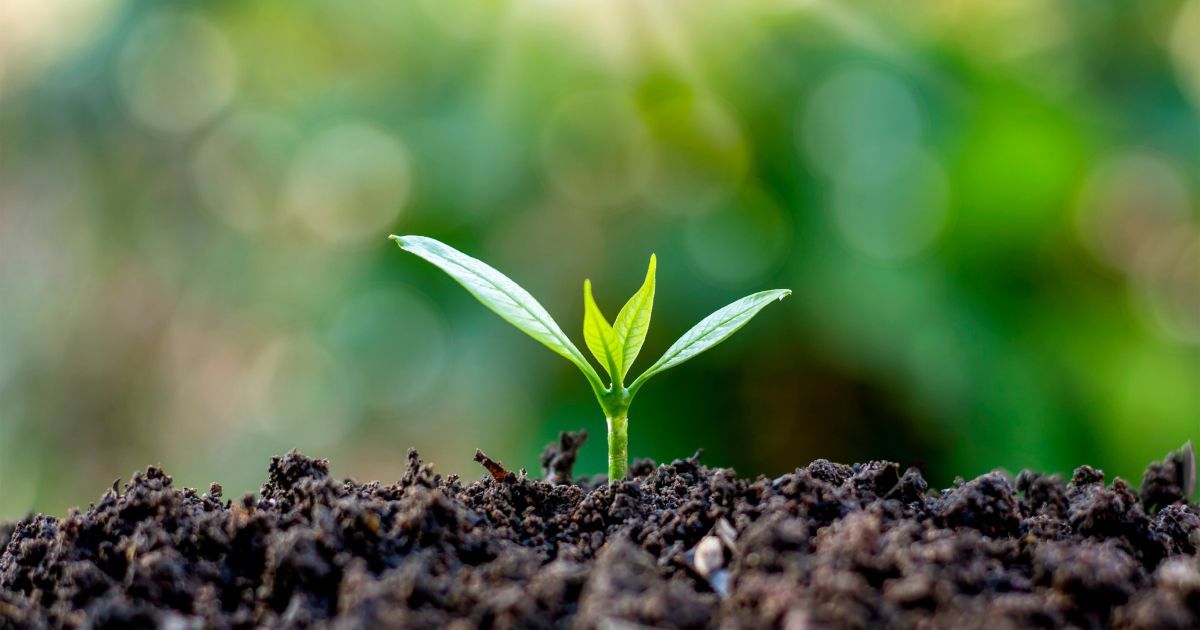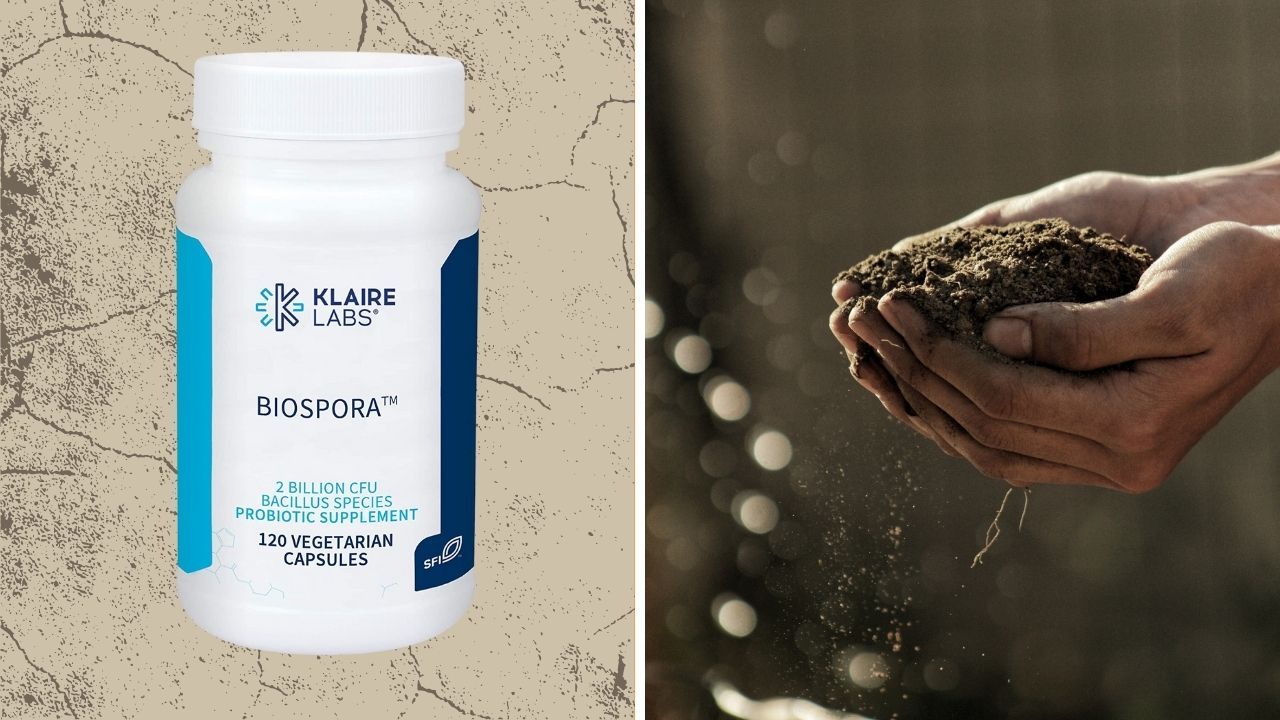
From Dirt to Digestion: What Are Soil Based Probiotics?
Discover the benefits of soil-based probiotics! Learn what they are, how they differ from traditional probiotics, and their impact on gut health.
You've probably heard a lot about probiotics and how they play a crucial role in maintaining gut health.
These friendly little microorganisms work wonders in our digestive system, helping us break down food, absorb nutrients, and even support our immune system. But did you know that there are different types of probiotics out there?
In this article, we'll dive into the fascinating world of soil-based probiotics and what makes them unique.
Brief Overview of Probiotics and Their Role in Gut Health
Probiotics are live bacteria and yeasts that are beneficial for our health, especially our digestive health.
- Think of your gut as a garden, and the probiotics are the friendly gardeners who help keep it well-tended and balanced.
- They can aid in digestion, reduce inflammation, treat IBS (irritable bowel syndrome), and even contribute to a healthier immune system.
Different Types of Probiotics
There are many types of probiotics, each with its unique set of benefits.
- Some common examples include Lactobacillus, Bifidobacterium, and Saccharomyces boulardii.
However, there's another type of probiotic that you may not have heard of before, soil-based probiotics.
Soil-Based Probiotics: Definition and Origin

Definition of Soil-Based Probiotics (SBOs)
They are also known as spore-forming or spore-based probiotics because they form spores to protect themselves from harsh conditions, like extreme temperatures or acidic environments.
How SBOs Differ from Traditional Probiotics
Unlike traditional probiotics, which are usually derived from dairy or plant sources and primarily contain Lactobacillus and Bifidocacterium strains, SBOs come from the earth itself. This unique origin gives them some interesting characteristics.
The Natural Source of SBOs: Soil
In the past, humans would naturally come into contact with soil-based microorganisms through activities like gardening, farming, or simply spending time outdoors.
These encounters allowed us to ingest small amounts of SBOs, which could then colonize our gut and contribute to a healthy microbiome.
Why Soil-Based Probiotics Matter

The Historical Relationship Between Humans and Soil-Based Microorganisms
Our ancestors had a much closer connection to the soil than we do today. They grew their own food, walked barefoot on the earth, and lived in harmony with nature.
This close relationship meant that they were regularly exposed to soil-based microorganisms, which helped maintain a diverse and balanced gut microbiome.
The Decline of SBOs in Modern Diets
Unfortunately, as our society has become more urbanized and sanitized, our exposure to SBOs has significantly decreased.
Potential Benefits of Reintroducing SBOs into Our Diets
Given the decline of SBOs in our modern diets, it's worth considering the potential benefits of reintroducing these hardy microorganisms into our daily lives.
By supplementing with soil-based probiotics or consuming foods rich in SBOs, we may be able to improve digestion, boost immune function, and support overall gut health.
Benefits of Soil-Based Probiotics

Soil-based probiotics offer a variety of health benefits that make them an excellent addition to your wellness routine.
Let's explore some of the advantages of incorporating SBOs into your diet:
Improved Digestion and Nutrient Absorption
SBOs can help break down food more effectively, allowing your body to better absorb essential nutrients. This can lead to increased energy levels, improved digestion, and overall better gut health.
Strengthened Immune System
A healthy gut is closely linked to a strong immune system. By supporting a diverse and balanced gut microbiome, SBOs can contribute to improved immune function, helping your body fend off illness and infection more effectively.
Enhanced Gut Health and Diversity
Introducing soil-based probiotics into your diet can increase the diversity of beneficial bacteria in your gut.
A diverse gut microbiome is essential for maintaining optimal health, as it helps to keep harmful pathogens in check and supports a healthy immune system.
Greater Resistance to Harmful Pathogens
SBOs can create a more inhospitable environment for harmful pathogens by producing substances that inhibit their growth.
This means that they can help protect your gut from harmful bacteria, yeasts, and other invaders that could potentially cause illness.
Potential Benefits for Mental Health
There is growing evidence to suggest that a healthy gut is closely linked to mental well-being. By supporting a diverse and balanced gut microbiome, soil-based probiotics may also contribute to improved mental health and mood.
Potential Treatment for SIBO
Small Intestinal Bacterial Overgrowth (SIBO) is a condition where an excessive amount of bacteria accumulate in the small intestine, leading to various gastrointestinal symptoms.
By introducing beneficial soil-based microorganisms, you can help restore a healthy balance of bacteria in the gut, making it less hospitable for harmful bacteria to thrive.
Soil-Based Probiotics vs. Traditional Probiotics

When it comes to choosing the right probiotic supplement, it's essential to understand the differences between soil-based probiotics and traditional probiotics.
Comparison of SBOs and Traditional Probiotics (e.g., Stability, Potency)
Soil-based probiotics are generally more stable than traditional probiotics due to their ability to form spores.
This makes them more resilient to the harsh conditions of our digestive tract like stomach acid, ensuring they reach your intestines alive and ready to work.
Pros and Cons of Each Type of Probiotic
Soil-based probiotics:
- Pros: More resilient, longer shelf-life, no refrigeration needed, may offer unique benefits due to their origin
- Cons: Less research compared to traditional probiotics, potential for adverse reactions in some individuals
Traditional probiotics:
- Pros: Well-researched, wide variety of strains available, proven benefits for gut health
- Cons: Less stable, shorter shelf-life, may require refrigeration, potentially less effective at reaching the intestines
Considerations When Choosing a Probiotic Supplement
When deciding on a probiotic supplement, consider factors such as your specific health needs, the strains included, the number of colony-forming units (CFUs), and any potential allergens or additives. You may also want to consult with a healthcare professional for personalized advice.
How to Incorporate Soil-Based Probiotics into Your Diet

There are several ways to introduce soil-based probiotics into your daily routine:
Soil-Based Probiotic Supplements
One of the easiest ways to incorporate SBOs into your diet is through a soil-based probiotic supplement. Look for reputable brands and products that contain a variety of soil-based organisms, as well as information on the number of CFUs per serving.
Food Sources Rich in SBOs (e.g., Fermented Foods)
Fermented foods like sauerkraut, kimchi, and certain types of yogurt can be rich sources of soil-based microorganisms. Including these foods in your diet can help support a diverse and balanced gut microbiome.
Tips for Maintaining a Healthy Gut Microbiome
In addition to incorporating soil-based probiotics, consider the following tips for maintaining a healthy gut microbiome:
- Eat a diverse and balanced diet rich in fiber, fruits, vegetables, and whole grains
- Limit your intake of processed foods, sugar, and artificial additives
- Stay hydrated by drinking plenty of water
- Manage stress through activities like meditation, yoga, or exercise
- Get enough sleep and maintain a consistent sleep schedule
Precautions and Side Effects
While soil-based probiotics can offer numerous health benefits, it's essential to be aware of potential safety concerns and side effects.
Safety Concerns and Potential Side Effects of SBOs
For most people, soil-based probiotics are safe and well-tolerated. However, some individuals may experience side effects such as gas, bloating, or upset stomach.
These symptoms are usually mild and temporary, but it's important to listen to your body and consult with a healthcare professional if you have any concerns.
Who Should Avoid or Be Cautious with Soil-Based Probiotics
Individuals with compromised immune systems, those who have recently undergone surgery, or those with a history of severe allergies should exercise caution when using soil-based probiotics.
It's always best to consult with a healthcare professional before starting any new supplement, especially if you have a pre-existing health condition or are taking medications.
Final Thoughts: Embracing Soil-Based Probiotics for Optimal Health
We've explored the fascinating world of soil-based probiotics and their potential benefits for our health.
From improved digestion and a stronger immune system to enhanced gut diversity and mental well-being, these hardy microorganisms have a lot to offer.
As our modern lifestyles continue to distance us from the natural world, it's more important than ever to consider incorporating soil-based probiotics into our daily routines.
Whether through supplements or fermented foods, these beneficial bacteria can help support a balanced and healthy lifestyle.
Remember to consult with a healthcare professional before starting any new supplement, and always listen to your body. By embracing soil-based probiotics and prioritizing gut health, you're taking a significant step towards optimal well-being.
So go ahead – get your hands dirty and explore the incredible world of soil-based probiotics!
Before You Go...




